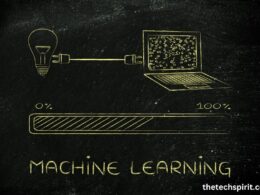In the fast-evolving world of technology, Artificial Intelligence (AI) has emerged as a game-changer, transforming industries and shaping the future of work. As AI continues to advance, it’s crucial to prepare for the challenges and opportunities that lie ahead.
Whether you’re a student, professional, or simply curious about this fascinating field, equipping yourself with the right skills and knowledge can open doors to exciting career paths and personal growth.
Table of Contents
Understand the Fundamentals of AI

What is Artificial Intelligence?
Before diving into the intricacies of AI, it’s essential to grasp the fundamental concepts. Artificial Intelligence is a branch of computer science that focuses on creating intelligent systems capable of performing tasks that typically require human intelligence, such as learning, reasoning, problem-solving, and decision-making.
AI Applications and Use Cases
AI has already entered various aspects of our lives, from virtual assistants and recommendation systems to self-driving cars and medical diagnosis. Understanding AI’s diverse applications and use cases will help you appreciate its potential and identify areas of interest.
Develop Critical Thinking and Problem-Solving Skills
Analytical and Logical Thinking
AI relies heavily on data analysis and logical reasoning. Developing strong analytical and logical thinking skills will be invaluable as you navigate the complexities of AI algorithms and decision-making processes.
Creativity and Innovation
While AI is often associated with automation and efficiency, it also presents opportunities for creativity and innovation. Embracing a creative mindset will enable you to envision novel applications of AI and contribute to its ongoing advancement.
Learn Programming and Coding
Learn Programming Languages
Programming is the backbone of AI development. Familiarize yourself with popular programming languages used in AI, such as Python, R, Java, and C++. These languages will enable you to build, train, and deploy AI models and applications.

Understand Machine Learning and Deep Learning
Machine Learning and Deep Learning are two fundamental components of AI. Gaining a solid understanding of these techniques, including algorithms, data preprocessing, model training, and evaluation, will be essential for anyone working in the AI field.
Embrace Continuous Learning: How to Prepare for Artificial Intelligence
Embrace Lifelong Learning
AI is a fast-growing field, with breakthroughs and advancements occurring regularly. Embracing a continuous learning mindset will ensure you stay ahead of the curve and adapt to new developments.
Develop a Growth Mindset
Cultivating a growth mindset is crucial in the AI world. Be open to learning from failures, seeking feedback, and continuously expanding your knowledge and skills. This mindset will help you tackle complex challenges and contribute to the advancement of AI.
Research AI Tools and Applications
AI-Powered Tools and Software
Numerous AI-powered tools and software are available, from virtual assistants and chatbots to image and speech recognition systems.

Exploring these tools will enhance your understanding of AI and provide practical experience in applying AI solutions.
Experiment with AI Projects
Hands-on experience is invaluable in the AI field. Participate in AI projects, hackathons, or personal projects to gain practical experience in building and deploying AI models. This will help solidify your knowledge and skills while preparing you for real-world challenges.
Stay Up-to-Date with Artificial Intelligence Trends and Developments

Follow Industry Leaders and Experts
Stay informed about the latest AI trends and developments by following industry leaders, researchers, and experts in the field. Subscribe to relevant blogs, newsletters, and social media channels to stay up-to-date with the newest advancements and insights.
Attend AI Conferences and Workshops
Attending AI conferences, workshops, and meetups can be incredibly valuable. These events provide opportunities to learn from experts, network with professionals, and gain exposure to cutting-edge research and applications.
Build a Strong Foundation in Mathematics and Statistics
Linear Algebra and Calculus
AI algorithms and models heavily rely on linear algebra and calculus concepts. Having a strong foundation in these areas will enable you to understand and develop more advanced AI techniques.

Probability and Statistics
Probability and statistics are essential for understanding and analyzing data, a critical component of AI systems. Gaining proficiency in these areas will help you interpret and draw insights from complex datasets, enabling more accurate and reliable AI models.
Develop Ethical Awareness and Responsibility
Ethical AI Principles and Guidelines
As AI becomes more prevalent, it’s crucial to consider the ethical implications of its development and deployment. Familiarize yourself with ethical AI principles and guidelines to ensure that AI systems are developed and used responsibly, with respect for human rights and societal values.
Responsible AI Development and Deployment
Responsible AI development and deployment involve addressing issues such as bias, privacy, transparency, and accountability.
Developing an awareness of these considerations will enable you to navigate the ethical challenges associated with AI and contribute to the creation of trustworthy and fair AI systems.
Collaborate and Network with AI Professionals
Join AI Communities and Forums
Participating in AI communities and forums can provide invaluable learning opportunities, sharing knowledge, and collaborating with like-minded individuals.

These platforms allow you to ask questions, discuss ideas, and gain insights from experienced professionals.
Attend Networking Events and Meetups
Attending networking events and meetups focused on AI can help you connect with professionals in the field, learn about job opportunities, and stay informed about the latest trends and developments.
Consider Pursuing an AI-Related Degree or Certification
AI Degree Programs
If you’re interested in pursuing a career in AI, consider enrolling in an AI-related degree program, such as Computer Science, Data Science, or Artificial Intelligence.

These programs provide a comprehensive education in AI fundamentals, algorithms, and applications, preparing you for a wide range of career opportunities.
Certifications and Online Courses
In addition to formal education, numerous online courses and certifications are available in AI and related fields. These can be valuable for professionals seeking to upskill or transition into AI-related roles, as well as for individuals interested in gaining specialized knowledge in specific areas of AI.
Conclusion
Preparing for the future of Artificial Intelligence requires a multifaceted approach. By understanding the fundamentals, developing critical thinking and problem-solving skills, embracing continuous learning, exploring AI tools and applications, and building a strong foundation in mathematics and statistics, you can position yourself for success in these rapidly evolving fields.
Cultivating ethical awareness, collaborating with professionals, and considering formal education or certifications can further enhance your preparedness. With dedication and a growth mindset, you can navigate the exciting world of AI and contribute to its ongoing advancement.
FAQs
What are some of the most in-demand AI skills?
Some of the most in-demand AI skills include programming languages like Python and R, machine learning and deep learning techniques, data analysis and visualization, and knowledge of AI frameworks and libraries like Tensor Flow and Porch.
Can I learn AI without a technical background?
While a technical background can be beneficial, it’s not an absolute requirement. Many online courses and resources are designed to introduce AI concepts and techniques to individuals with diverse backgrounds. A willingness to learn programming and mathematics is essential.
How important is ethics in the field of AI?
Ethics plays a crucial role in the development and deployment of AI systems. As AI becomes more prevalent, it’s essential to address ethical considerations such as bias, privacy, transparency, and accountability to ensure that AI systems are trustworthy, fair, and aligned with societal values.
What are some examples of AI applications in everyday life?
AI applications are prevalent in various aspects of our daily lives, including virtual assistants (like Siri and Alexa), recommendation systems (used by streaming services and e-commerce platforms), facial recognition software, spam filters, and navigation apps that use AI for route optimization.
How can I stay up-to-date with the latest AI trends and developments?
To stay up-to-date with AI trends and developments, follow industry leaders and experts on social media, subscribe to relevant blogs and newsletters, attend AI conferences and workshops, and participate in online AI communities and forums. Additionally, explore AI-focused publications and research papers to gain insights into cutting-edge advancements.









